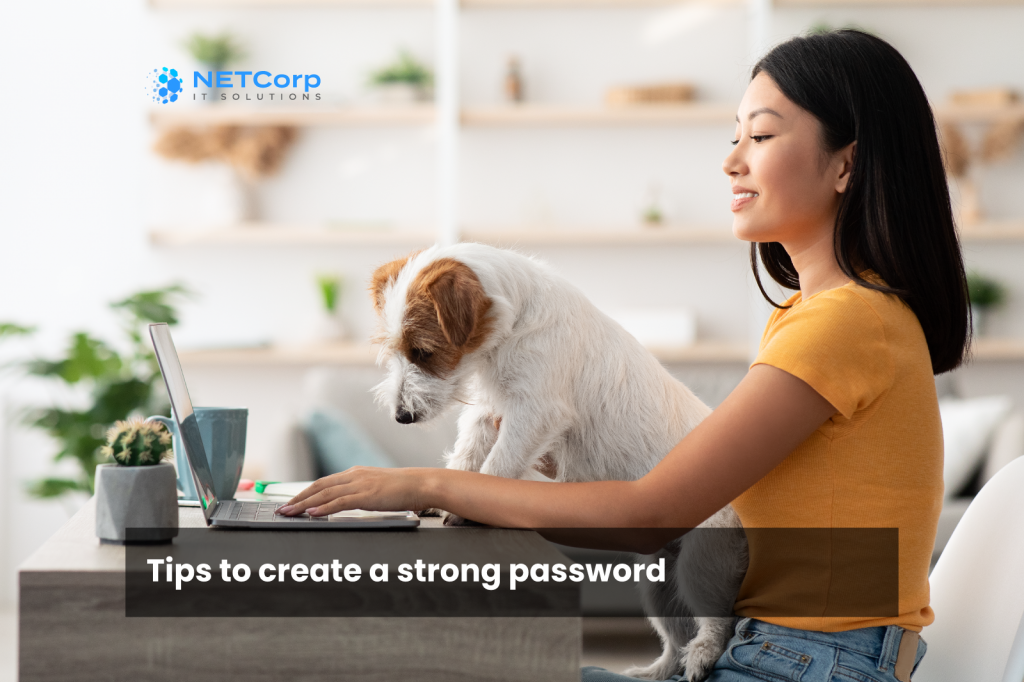Name of your loved one with a combination of your date of birth isn't a good password practice.
Learn how to create a sequence for a master password.
Yes, we have asked this before, and we are forced to ask again. How strong is your password?
We are constantly seeing instances where passwords are words related to users’ personal life. When we our lives open on online social media platforms, where we post photos and names of our pet, children and spouse, how safe is it to have their names as password?
For most hackers it is an easy game these days, once a person is targeted, their social profiles are scanned for personal details. Hackers collect this information to access their company accounts. From a person’s personal account to a companies’ secured network, that becomes an easy route to for cyber criminals to hack into an organization.
Are you thinking fine they know the name of my puppy, but I have used it with a combination of other characters? Using puppy name with a combination of your birth date or a common characters like exclamation mark isn’t a smart choice either. These type of passwords can be easily guessed to gain access to your email account.
When a cyber criminal identifies a target, they run intensive research on the web to get as many details as possible. Most people can only remember their recent posts, nobody thinks of what they have posted online over the years. Also, there may be accounts that you don’t use anymore but you may not have deleted the account, so the data stays online. This then becomes a fodder for dark web players.
You may be uploading your pictures as private, but there could be photos uploaded by friends publicly. Moreover, when you click photos how aware of your background, you maybe giving out a lot of information about your or office for a person who is actually looking for it.
Another major issue is using the same password for all accounts. This means if your zoom account password gets compromised, consider your official email account also as compromised. This way cybercriminals find new ways to launch ransomware and other malicious agents into the business network.
So why do people use easy passwords even when they know the risk involved?
Its our laziness that paves way for cybercrime. Every employee is briefed by their respective IT department about password etiquette, yet we fall back on what’s comfortable for us. All of us have been instructed not to write down passwords on a notepad or to store it online.
So how do you memorise complex passwords? To make it worse, its not just one password, you are asked to create unique passwords for all accounts. Most people believe that it is a big ask to remember 20 – 30 passwords. So, isn’t puppy name the best option?
No! Not when we can help you create strong unique passwords that are easy to remember.

Tips to create a strong password
A good password is one that is complex to hard to guess. There are innumerable ways to combinations you can try for creating strong passwords.
- Create a formula: Think of a sequence say Name of your favourite person, then a favourite sport, then a number sequence and finally special characters. Memorise this sequence or master password and also think of how you will interchange it for the next change.
- Use short names: Don’t not use full name of your friend/spouse/pet; instead use just the first 3 letters. So, if the name that you wish to use is John, just use joH in the password.
- Favourite sport: Just like we did for the name, create a short word for your favourite sport. So crI for cricket. Now the password would read joHcrI.
- Create unique number: Now to add numbers you can use the remaining letters from the names used earlier and convert them into a number corresponding that letter. So, John and Cricket can be written as joH14crI311520 (N=14, c=3, k=11, e=5, t=20).
- Add special characters: Use special characters between two name and in the end. joH14crI311520 – break it using %^ – joH14%crI311520^
Some of the variable that you can use are – name of a close friend, your first teacher, favourite day, most memorable day and so on. You just have to remember one sequence so all your passwords for a set period of time will be variables of that sequence. You can come up for a variety of such variations. This way you can use the names of people you like while making it difficult for hackers to guess.
Some Strong Password Best Practices
- Do not use sequential numbers or letters eg. 1234
- Don’t include personal information such as date of birth
- Use a combination of letters, numbers and special characters
- Do not reuse password
Apart from this a company may have password policies in place like:
- Minimum Password Age Policy
- Password history policy
- Minimum password length policy
- Password complexity policy
- Common Password protection
It is imperative for every employee to adhere to this policy to safeguard personal as well as company assets online. Ransomware attack on Australian SMB’s are on the rise and the Federal government is doing its best to strengthen the law and bring in awareness to thwart cyberattack attempts. If you are impacted by ransomware attack, you should visit https://www.cyber.gov.au/ for advice.





